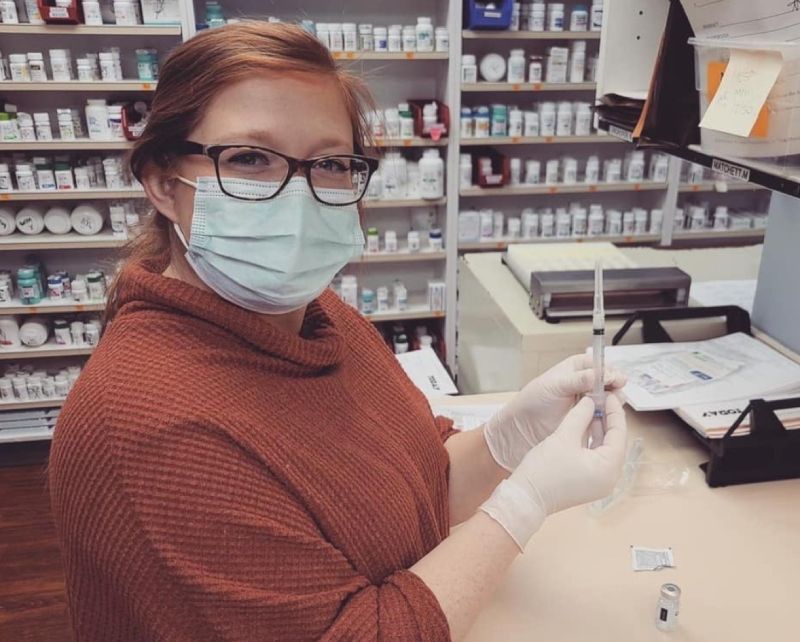10 Jobs You Can Get with a Medical Assistant Certificate
Medical assisting is one of the most versatile career paths in the healthcare field, offering opportunities to work directly with patients, support medical professionals, and handle administrative tasks in a wide variety of settings. For those looking to enter the healthcare field, earning a certified clinical medical assistant (CCMA) certification is a smart first step.
In this blog post, we’ll cover what you need to know about the opportunities available to credentialed CCMAs — from understanding the value of the certification to discovering potential jobs and ideal workplaces.
What Is a Medical Assistant Certificate?
A CCMA certificate is a credential that demonstrates holders are fully qualified to assume the responsibilities of and perform the duties that come with the medical assistant role.
The Purpose of a Medical Assistant Certificate
The primary reason people choose to pursue CCMA certification is to demonstrate their competency to potential employers. Medical assistants are trusted to perform tasks that range from administrative duties to clinical procedures, and certification signals to hiring managers that applicants have the skills and knowledge needed to become an asset to their teams and handle the pressure of working in fast-paced medical environments.
The Benefits of Earning Certification
The main perk of earning a CCMA certification is that it can be leveraged for entry into the healthcare field. Especially for anyone who’s just starting out, certification is a way to gain valuable hands-on experience and build a foundation for a career in medicine.
Additional benefits include:
- Higher starting salaries and greater overall earning potential
- Access to a wider range of job opportunities
- Recognition as a qualified professional in a competitive field
- The opportunity to develop a versatile skill set
How Certification Impacts Career Advancement
For many employers, certification is a required condition of employment. And even in cases where it isn’t mandatory, applicants who hold a CCMA certificate may still be prioritized as the credential demonstrates a commitment to professional growth and development.
What’s more, this certification can serve as a stepping stone for career advancement, leading to specialization in areas like phlebotomy, EKG testing, or direct patient care. It can also provide a pathway to further education and advanced healthcare roles, such as nursing or physician assistant positions.
What Jobs Can You Get With a CCMA Certification?
While most people who earn their CCMA certification go on to work as medical assistants, the credential can actually prepare you for a variety of rewarding healthcare roles. Let’s take a closer look at ten of the most common jobs you can get with a CCMA certification:
1. Clinical Medical Assistant
CCMAs work directly with patients — assisting with procedures, recording vital signs, and preparing exam rooms. In their role, they also support physicians with tasks like taking patient histories and administering medications.
- How CCMA Certification Helps: While there are no state-mandated certification requirements to become a clinical medical assistant, many healthcare organizations give preference to certified applicants who have completed CCMA training programs.
- Average Salary: According to the U.S. Bureau of Labor Statistics (BLS), medical assistants make a median annual salary of $42,000.
- Job Outlook: The BLS also projects the role will experience 15% growth by 2033, which translates to 119,800 new job openings each year.
2. Medical Office Assistant
While CCMAs focus on providing clinical assistance at healthcare facilities, medical office assistants are tasked with providing administrative support. Common tasks include scheduling appointments, managing patient records, and handling billing and insurance claims.
- How CCMA Certification Helps: Certification provides the necessary administrative training needed to excel in this role.
- Average Salary: Medical office assistants make a median yearly salary of $40,640.
- Job Outlook: Strong growth is expected due to the expanding need for administrative support in healthcare facilities across the country.
3. Phlebotomy Technician
Phlebotomy techs specialize in drawing blood for tests, transfusions, or donations as well as ensuring proper labeling and handling of collected samples.
- How CCMA Certification Helps: CCMA training programs provide hands-on experience working with patients, which is essential for phlebotomy technicians. Note that additional phlebotomy training may also be required.
- Average Salary: In the U.S., phlebotomy technicians make an average of $39,834 per year.
- In the decade between 2023 and 2033, the phlebotomist job pool is expected to grow by 8% (or roughly 19,600 new openings per year).
4. Medical Claims Examiner
Medical claims examiners review and process insurance claims, ensuring compliance with all applicable policies and regulations.
- How CCMA Certification Helps: A CCMA certificate provides foundational knowledge of medical terminology and billing practices.
- Average Salary: On average, medical claims examiners earn a yearly salary of $42,773.
- Job Outlook: Employment of claims examiners (including medical claims examiners) is predicted to decline by 5% between 2023 and 2033. Still, roughly 21,500 openings are expected to become available each year within this timeframe.
5. EKG Technician
EKG techs perform diagnostic tests, such as taking electrocardiogram readings and administering stress tests, to assess heart health.
- How CCMA Certification Helps: Training in cardiopulmonary tests is part of the curriculum for many CCMA programs.
- Average Salary: The average annual salary for EKG technicians in the U.S. is $56,482.
- Job Outlook: By 2033, demand for this role is expected to grow by 11%, adding about 9,400 new openings each year.
6. Nursing Assistant
Nursing assistants work under the supervision of registered nurses to provide basic patient care, including bathing, feeding, and monitoring vital signs.
- How CCMA Certification Helps: Having a CCMA certification prepares you to provide direct patient care. To become a licensed nursing assistant (LNA) or a certified nursing assistant (CNA), additional state licensing requirements must be fulfilled.
- Average Salary: Nursing assistants make a median annual salary of $38,200.
- Job Outlook: Employment of nursing assistants is expected to grow by 4% in the decade between 2023 and 2033. This means that roughly 216,200 new openings are projected each year.
7. Home Health Aide
Home health aides provide basic care and assistance for in-home patients. Common tasks include meal preparation, help with maintaining personal hygiene, and medication reminders.
- How CCMA Certification Helps: Though it can increase your earning potential and help you develop beneficial skills, CCMA training isn’t necessarily required to land this position.
- Average Salary: On average, home health aides make $37,581 per year.
- Job Outlook: Demand for this role is expected to increase 21% by 2033, which translates to roughly 718,900 new positions each year.
8. Surgical Technician
Surgical techs support surgeons before, during, and after procedures by prepping operating rooms, equipment, and patients; passing instruments and other sterile supplies to surgeons; and transferring patients to recovery rooms and restocking the operating room.
- How CCMA Certification Helps: CCMA credentials can serve as a stepping stone to this role as additional surgical training and experience is required.
- Average Salary: The median annual salary for surgical technicians is $59,160.
- Job Outlook: By 2033, 6% growth and 8,700 yearly openings are expected for this role.
9. Medical Records Specialist
Medical records specialists manage health information at medical centers, hospitals, and clinics. Typical duties include compiling, processing, and maintaining patient files.
- How CCMA Certification Helps: A CCMA certification provides foundational knowledge of medical terminology and documentation practices.
- Average Salary: Medical records specialists earn a median annual salary of $48,780.
- Job Outlook: Growth for this role is expected to increase by 9% (and add about 15,000 new openings each year) in the time between 2023 and 2033.
10. Medical Office Manager
Medical office managers oversee daily operations of healthcare facilities, including managing staff, budgets, and regulation compliance.
- How CCMA Certification Helps: CCMA certification provides valuable knowledge of the administrative practices and regulatory compliance needed to run a medical office.
- Average Salary: On average, medical office managers earn $64,283 per year.
- Job Outlook: The BLS predicts that employment for healthcare jobs — of which medical office manager is one — will grow much faster than the average for all occupations between 2023 and 2033.
Best Places to Work With a Medical Assistant Certification
Whether you thrive in fast-paced settings or prefer a more specialized role, your CCMA certification affords opportunities to work in a wide variety of healthcare environments. The following are some of the many places you can work with a medical assistant certificate.
- Hospitals: Offer excellent opportunities to work with diverse patient populations and gain exposure to various medical specialties
- Clinics: Ideal for those seeking a more routine and predictable work schedule and a closer connection with a regular patient base
- Research Centers: A great fit for anyone interested in contributing to medical innovations by assisting with clinical trials and medical research studies
- Outpatient Care Facilities: Provide opportunities to specialize in a particular area of care, such as orthopedics or cardiology
- Insurance Companies: Perfect for anyone looking to assist with reviewing claims and verifying medical information and who prefers a non-clinical role with regular office hours
- Nursing Homes: A rewarding workplace for those who enjoy building relationships with patients and providing compassionate care
- Diagnostic Labs: An excellent choice for detail-oriented individuals who enjoy working behind the scenes in healthcare supporting testing processes, preparing samples, and communicating results to healthcare providers
- Urgent Care Centers: Ideal for professionals who thrive in fast-paced settings and enjoy taking on varied responsibilities, such as performing patient intakes and providing minor wound care
FAQs
What jobs can you get with a CCMA certification?
Healthcare professionals who have a CCMA certification can pursue a wide variety of roles that include everything from medical assistant and phlebotomy technician to…
Is CCMA certification worth it?
Earning a CCMA certification comes with several benefits, including higher starting salaries and greater overall earning potential, access to a wider range of job…
What’s the next career step after becoming a medical assistant?
Becoming a medical assistant is a great way to get your start in the healthcare field.
Where can you work with a medical assistant certification?
There are many places you can work with a CCMA certification, including hospitals, clinics, research centers, outpatient care facilities, insurance companies, nursing homes, diagnostic…
Jumpstart Your Healthcare Career With Advanced eClinical Training
A CCMA certification isn’t just a credential; it’s a pathway to a rewarding career in healthcare, equipping you with the skills and knowledge needed to succeed in a wide range of roles in diverse workplaces.
If you’re ready to take the first step toward a career in medicine, enrolling in ACT’s online CCMA certification course is the perfect place to start. With expert instruction, hands-on learning experiences, and personalized support, our program prepares you to enter the workforce in as little as 8 weeks.


